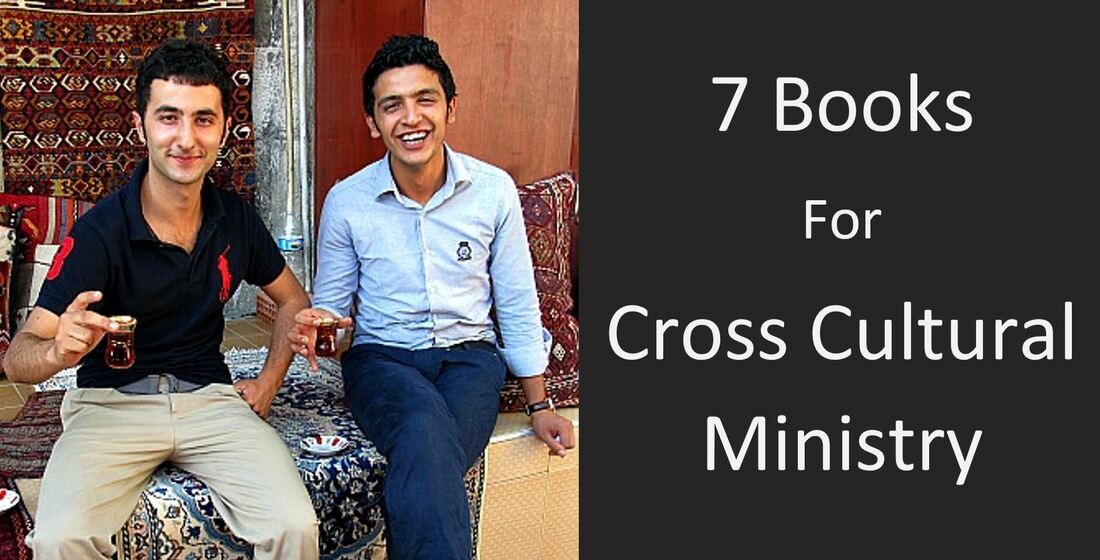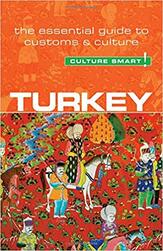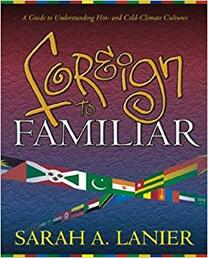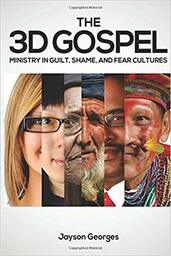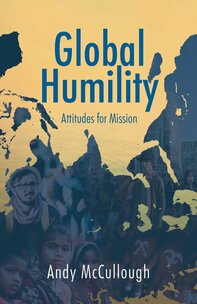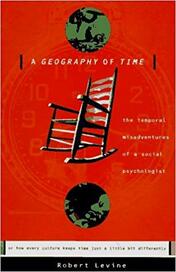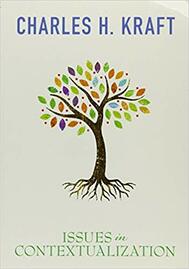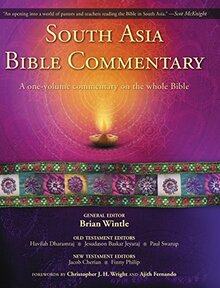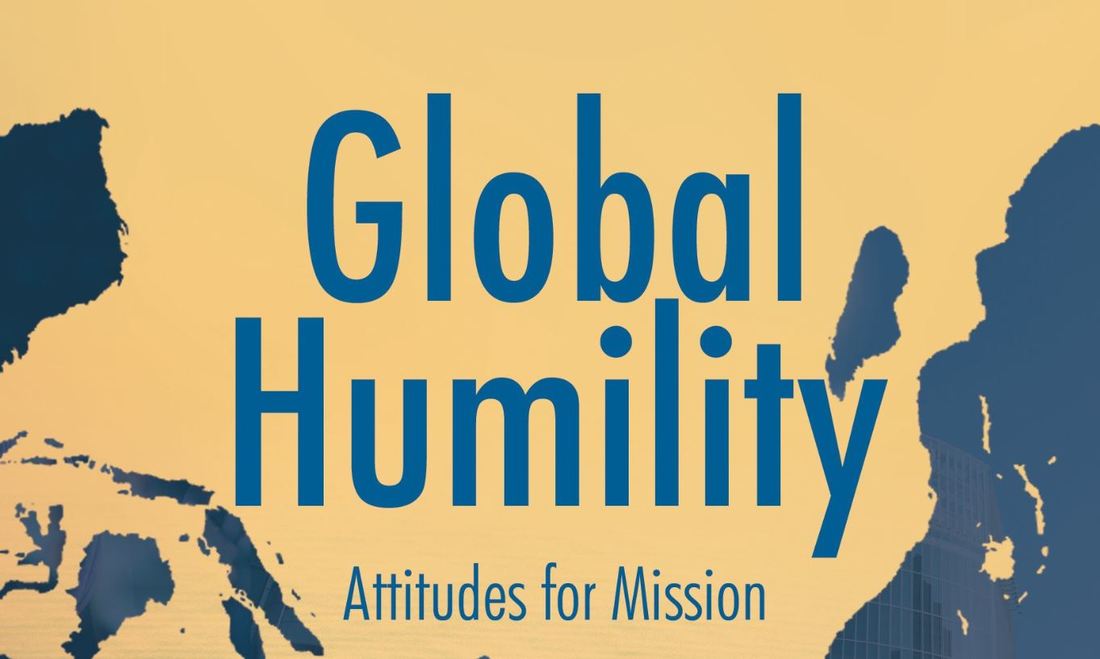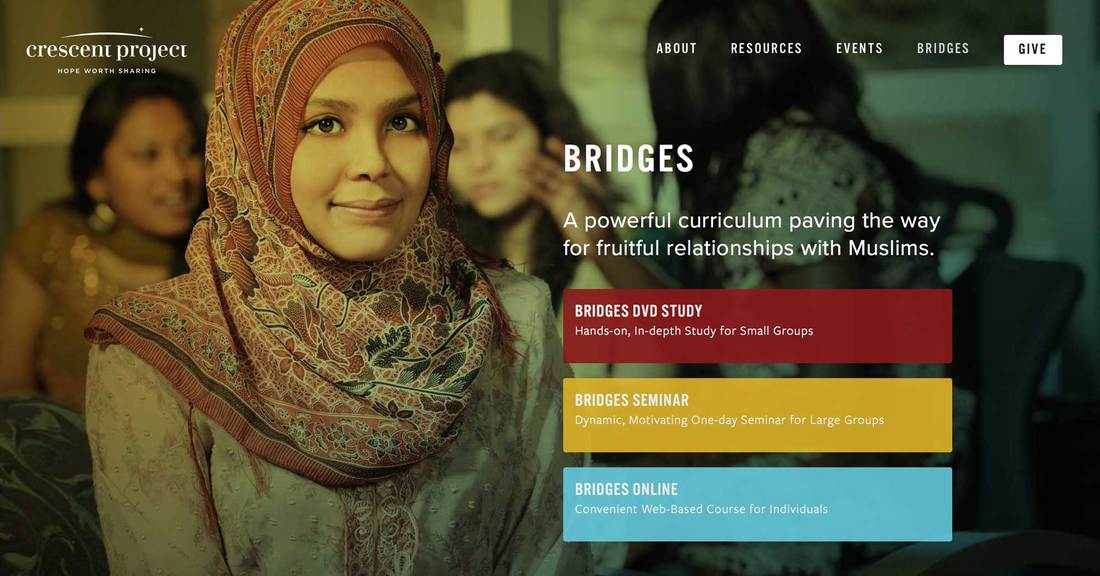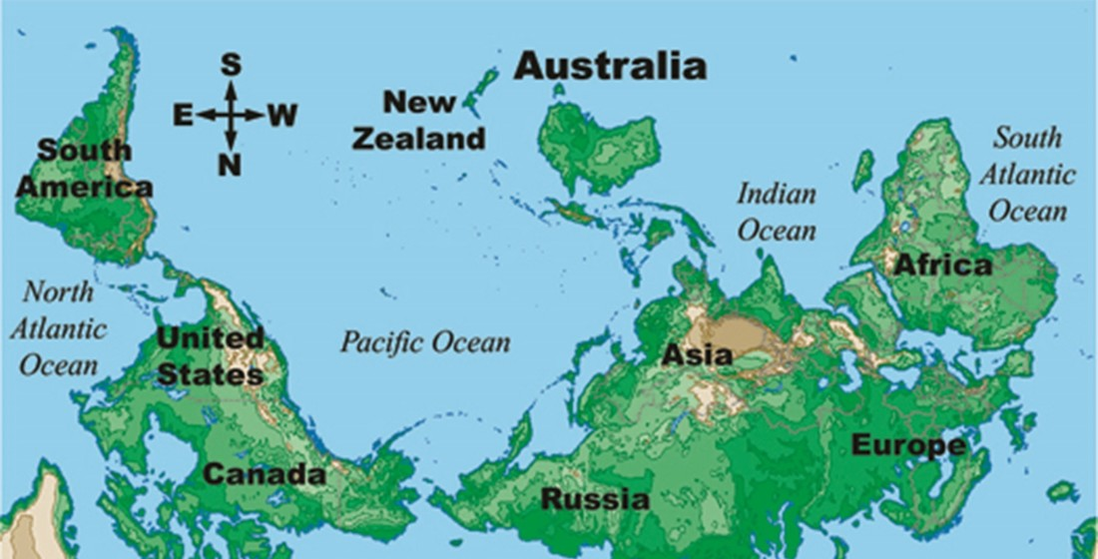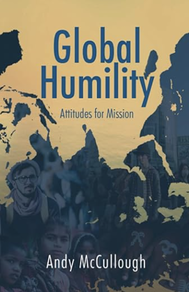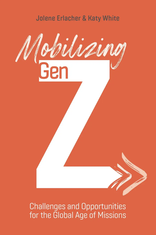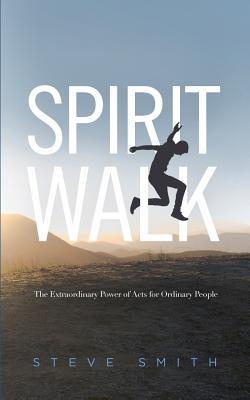|
By Sonora L Myers Malachi and I had sent mom and dad to enjoy a romantic meal for their anniversary which they had forgotten about until an hour ago. Left to buy dinner for ourselves, we decided to head back to the little döner restaurant with the scabby, stray cat that we’d eaten at the day before. We had stopped a moment outside of Starbucks when two small boys approached wanting to sell us cheap, blue, foam flower crowns. The city was so full of beggars and small children selling crafts and packets of kleenex that I had begun to grow insensitive to their presence. So when the small boys asked if we would like a flower crown, I quickly brushed the offer aside with a polite Turkish ‘tsk’ and said, “Biz iyiz” (we’re good). Surprised that we ‘foreigners’ could speak Turkish, they inquired about how two Americans knew their language. I was tired - emotionally, physically and mentally. This evening was our last day of our month-long sojourn in Europe and Turkey. After weeks of exerting my poor Turkish skills to their maximum communication and comprehension levels as we reunited with old friends, helped a church minister to many small villages in the earthquake zone and played with the kids on Gypsy Hill, I had little capacity for a chit chat with these two children. Shrinking back, I stood and zoned out as Malachi answered their probing questions. I was mindlessly waiting for them to leave us in peace so we could go and enjoy our dinner when, as I stood there, passive to anything but my own tired brain, one of the little boys broke from the conversation, approached me, and in one swift motion reached up and placed a foam flower crown on my head. His childish little face lit up in the sweetest smile as he said, “Bu senin için abla” (This is for you big sister). And just as quickly as they had appeared, they were gone, drifting around the corner and into the crowd. I stood stunned for a moment and then it was like I woke up from a long slumber to where I was - Kuşadası, Turkey, to the people rushing around us on all sides, to the beauty, to the need, to my utter desensitization to life. I stood in the insecurity I felt by my blundering attempts to communicate in a language I hadn’t spoken since I was six, in my feeling of vulnerability and fatigue and the need to remain dignified and not look foolish. I had built up walls around my heart, had taken up my home in a cold brick castle rather than humbly accepting the warm hospitality of the country and people of Turkey. I had allowed my own limitations to limit my heart. Rather than becoming personal, I withdrew and became private. I closed my eyes to my presence in a place full of people that God desperately wanted a relationship with. I didn’t put myself in the Lord’s hands, trusting that he would protect me and use my vulnerability but rather, I protected myself at the cost of losing sight of what mattered most. I choose security over generosity. I acted out of a place of scarcity rather than leaning into the rich abundance of God. I still have that flower crown. I keep it as a reminder to be generous, not just with my money but with everything; my time, my attention, my energy, myself. I keep it as a reminder to live out of humility in the security of the Lord rather than self-forged walls and a castle with closed gates. If you found this article helpful, pass it along to a friend who you think may benefit from reading it.
0 Comments
One of the great challenges we face as Christians in an increasingly globalized world is understanding how to share the love of Jesus and the good news of the gospel cross culturally. As if language barriers were not enough, deep cultural differences in worldview, in customs, in values and history all have the potential to create barriers to good communication and open up wide avenues for miscommunication. Debbie DiGennaro, in her book Acclicmated to Africa: Cultural Competence for Westerners, shares a humorous story that highlights this challenge: There was once a certain British man who went with his company to Nigeria. He immediately noticed about Nigerians that the men did not step back to allow ladies to enter a room ahead of them. This bothered him very much. As a proper gentleman, whenever he approached a doorway at the same time as a Nigerian woman, he courteously motioned for her to pass through the door ahead of him. It is not hard to imagine why, in a country where for thousands of years families most likely lived in grass huts with snakes being an ever present issue, the custom of how to enter buildings developed differently than it did in England. It's also not hard to imagine the looks of confusion and even disdain this British gentleman must have received from Nigerian women as he emphatically ushered them into their potential death by snake bite. This cultural nugget of difference is multiplied thousands of times with every new cultural context we enter. Some issues are minor while others can lead to tremendous damage to relationships and potential opportunities to share the gospel. As disciples of Jesus it is important to first realize that those differences, both the deep and the shallow, will always be present when we move into cross cultural settings. We then must do the hard work of trying to understand these differences to see where God is already at work and how we can join him there. This is hard work. Just when we think we’ve figured something out we’ll run into nuances that will confound us once again. If cross cultural ministry is something that you are or will be a part of then it is vitally important to do some homework. Cross cultural ministry can happen in varying degrees wherever you are. Crossing the ocean to engage with people from a different religious background that speak another language is of course more complex than a midwesterner traveling to New York City, but both are cross cultural ministry. Regardless of the complexity and depth of difference between cultures, we can train ourselves to do better at recognizing both the differences and the opportunities they present. Part of that training could be reading books like Foreign to Familiar by Sarah Lanier or Global Humility by Andy McCullough. Context specific books like the one shared above can be a next step. There are also great trainings for missionaries preparing to move overseas at places like Mission Training International and the Center for Intercultural Training. Here at Everywhere to Everywhere though we are working to equip and empower the local church for local cross cultural ministry and so have created a fun and interactive one day training we call the Cross-Cultural Scavenger Hunt Training Module. This training can be done in any local city in about 5-6 hours. It includes discovery Bible study, interactive lecture and activities, lunch at an ethnic restaurant and a cross-cultural scavenger hunt that takes participants to three to four different immigrant-owned grocery stores. All of this is followed by a debrief while eating snacks purchased at the stores. This has been an amazing way to help local congregations move past fear and begin to get to know their new American neighbors - many of whom come from Muslim, Hindu, Buddhist or Animistic backgrounds. Many of whom have never had an opportunity to hear the gospel. The goal of the training is to bring awareness of the different cultures around us and then give participants a beginning framework for understanding the differences so that they can more effectively love well and share the gospel more confidently. If you would like to explore hosting your own Cross Cultural Scavenger Hunt Training Module you can find a fuller description of the event and all the necessary resources by clicking the button below. Did you find this post helpful? Share it with a friend. Before moving to Central Asia in 2008 I was fortunate to spend time at Mission Training International (MTI) in Colorado doing some pre-field training. This included two weeks of language training with Dwight and Barbara Gradin. We were not learning our target language but rather receiving training to be more effective and efficient language learners. That training set the stage for becoming a language coach and the writer behind The Everyday Language Learner. The goal was to help as many people as possible be successful language learners and in the process create a location independent business which would allow continued work throughout the Muslim world regardless of whether we lived there or not. When we returned to the states in 2012, my goal was to continue to grow this online business model. Traffic grew. Influence grew. But I lacked the business acumen to really make a go of things. And so in 2014, The Everyday Language Learner went away. I moved on and see now all that God was doing to prepare me through those years for the work I'm doing now to mobilize and train the church into the harvest. I want to share with you a few resources that were created during that season. The three resources below are ebooks that you can downloard for free. I hope that they will help you learn another language so that you can more effectively share the gospel. Enjoy and share them with others. Before You Move Overseas: This workbook is a blueprint for the weeks and months BEFORE you board the plane. In it you will find actions that, when implemented, will help you prepare for the language learning journey. This workbook is filled with the actions I wish someone had encouraged me to take in that year before moving. The bulk of this guide then is made up of ten actions you can take over the coming months before you move. [Read it Here] Activities and Strategies for Everyday Language Learners: This ebook is a collection of 56 articles from the Everyday Language Learner blog focusing primarily on practical, hands-on activities you can do in your personal study time, with a language helper or out in the community. This is a 243 page ebook! [Read it Here] The Everyday Language Learner's Guide to Getting Started: This is the most robust guide I wrote and in it I give all the information needed to be a self-directed, independent language learner. [You can download a zip file from the bottom right of the Resource Page] Most cross cultural work will require the learning of another language. It is essential to be able to effectively communicate the gospel. I hope that these resources will help you on the language learning journey. Jesus instructed his followers - which includes us - to go and make disciples of all nations, baptizing them in the name of the Father and of the Son and of the Holy Spirit and teaching them to observe all that He had commanded. It was the last instruction that he gave to his first disciples and as they obeyed, the gospel quickly spread out from Judea and into all of the surrounding regions and it kept going. In the process of moving out, the disciples who carried the gospel, quickly began to cross linguistic and cultural barriers and they began to wrestle with how to communicate the gospel well. This has been an ongoing challenge for every generation of disciples as they strive to obey Jesus. It is a challenge for our generation as well. Doug Birdsall says that, "The Great Commission is for every church in every culture in every generation. There are no exclusions. But . . . every church in every culture in every generation must determine the way in which they respond to this responsibility -- in a way that is appropriate to time and context." Here are seven books that I think you will find helpful for learning how you should respond as you have opportunities to cross cultural barriers with the gospel. Getting Started
Digging Deeper
The Textbooks
I've been thinking a lot about the different phases of the growth of the church. In a place like Turkey where the church is small - well less than 1% of the population are followers of Jesus - the church looks different than it looks in a place like Europe or the United States - places where the church has been established for hundreds, even thousands of years. When I came across the video below, I found it helpful as I struggle with some of the realities of my context in the U.S. where the church has largely been institutionalized and professionalized and is quickly moving into a post Christian reality. It was helpful as well as I thought about the many works we are helping to support in unreached areas of our world - places like Turkey. There are some good lessons to be drawn from Ray Vaughn's explanation. Church historians will undoubtedly find flaws in the explanation, but I found it helpful to think about. As we consider the different contexts where we seek to be faithful to proclaim the good news and make disciples, there are lessons that we need to learn and apply. This teaching is 30 minutes long. It is a basic overview of what missiologists have observed in each of the phases of the growth, expansion and decline of the church throughout history and throughout the world. It is descriptive not prescriptive, a backwards glance at what has happened, not theoretical thinking about what we should do. I'd encourage you to find some time to watch it with a few questions in mind.
So you are going on a short term missions trip and you're beginning to ask the question, "Should I work at learning the language before I go?" It is a question everyone seems to ask for which there is but one answer . . . . YES! Yes you should!
But . . .
The missionary anthropologist Charles H. Kraft was recently asked, "How much time should one who goes to serve as a two month short-term missionary spend in language learning?" Charles Kraft holds a high value on learning the local language. Learning the local language is often seen as little more than a means to an end. The end for most followers of Jesus is the proclamation of the gospel. And yes, this is essential! This is why we go. But it too often reduces to the local language to nothing more than a tool. This is unfortunate because language is always so much more than just a tool. Language is the carrier of culture and worldviews, of relationships, of love and joy and pain and fear and hope. When we reduce language to merely a tool, we often come to the conclusion that we need not bother learning any of that language when we travel as part of a short term mission trip. This is unfortunate for a number of reasons. Practically speaking, language is important to survive. At the very least we can all understand just how important it might be to be able to say, "Do you know where the bathroom is?" Learning 10 - 20 survival phrases will go along way to saving you from the embarrassment of being lost or unable to find the nearest bathroom. Relationally speaking, our efforts to posture ourselves as learners of the language and culture communicate fundamentally important respect and honor for the people to whom we have gone to serve. Nothing says that you actually care about the person in front of you quite as powerfully as stepping into the humble place of a language learner. In doing so, by taking on the role of the learner, of the one without the power, you invite your host to in effect, take you by the hand lead you. This is an act of kindness. This is laying down our rights. This is love. I want to encourage you to take a few minutes to read a four page essay written by Thomas and Elizabeth Brewster. They were at the forefront of helping generations of missionaries learn the languages of the people they were going to serve. The Charles Kraft quote above comes from this powerful essay. You can read it here: Language Learning is Communication -- Is Ministry Getting Started So you have a trip on the horizon. You are a few weeks away from departure or perhaps you have many months to prepare. Regardless of how much time you have, here are a few things you can do to begin learning the language. These are the things I'm doing to learn French for an upcoming trip to West Africa. Sign up for Duolingo: Ten minutes a day will give you a beginning in the language and get you started with a foundation of vocabulary and basic grammar structures. You can find it on the app store for your smart phone or you can access it on your computer. (learn more here) Begin Listening to Worship Music: For the past month or so I've had a French worship mix from Hilllsong playing in the background while I work during the day. In a way, what I am doing is training my ear to hear and distinguish sounds, intonation and rhythms of the French language. You can find worship music by searching for it on Youtube. For example, by searching on Youtube for "French Worship", I found this mix of French worship songs. Listen to a Gospel: Chose one of the gospels and begin listening to a chapter or two every day. When you finish, start over from the beginning. You'll be surprised how much you begin to understand. You can find many languages available on the Youversion app or the Bible.is app. Memorize Phrases: Find and memorize 10 - 20 important phrases in the language. Make sure that one of those phrases is, "Can you help me learn your language?" Here are 25 phrases I'll be starting to learn in French. Keep Learning: While in the country take every opportunity to practice with your local hosts. Keep learning. Ask questions. Boldly step into the role of being the town clown! Yes, people will be entertained by your language foibles, but it is worth it! A language mentor of mine used to say that "it takes a million mistakes to learn another language --- So get started!" Don't Miss Out Investing as much time and energy as you can in learning the language will do much to make your trip more meaningful and transformational. We all have different capacities and time constraints but we can all do something. It is what you'd want someone to do for you if they were coming to visit you. Jesus tells us to "do to others as you'd have them do to you." Learning the language then is an act of obedience to Jesus. Don't miss out. Click here for Free Language Learning Resources From E2E My Language Learning Story In a past iteration of life, I was a language coach, helping everyday, ordinary people be more effective, more efficient and have more fun with the language learning journey. I created a number of resources that I'd love to be able to pass on to you if you would find them helpful. I have a number of ebooks as well as a series of videos. You can watch the language learning tips videos HERE. If you would like to have any of the ebooks, leave a comment below. Below is one of those language learning tip videos. Enjoy! Power.
Power does funny things to relationships. It changes the dynamics of how relationships form and grow and become. When I met my first friend in kindergarten, we met and built our relationships on even ground. We both couldn't read or write, we both struggled with things like tying our shoes and sitting still in class, we both came from similar backgrounds and approached life with the similar challenges and opportunities. Furthermore, we both spoke English, the language of our neighborhood, region and country. As I grew older I began to realize that the forming of relationships takes work. It takes time and it often takes patience. Sometimes relationships come easily. Other times it takes more time and more energy, and sometimes I realized, our differences in life experiences create relational dynamics that make it more difficult to build authentic relationships. Cultural differences create relational challenges that are often difficult to overcome. There are many types of differences; some obvious, some less obvious. but all are impactful on the relationships we form. While we can all work to overcome these differences, there are some differences that create power dynamics which inhibit the normal formation of relationships. Let me give you an example. I was at a conference in a North American city. The conference was a gathering of African pastors and elders from around the upper Midwest. All of them had come to the U.S. as refugees following a season of intense persecution against their particular tribe in their home region. All of them were men of reputation in their communities back in Africa, and that reputations had in many ways transferred with them to the U.S. They were leaders of men. But they had invited some of American leaders from their denomination to come and teach on a particular subject during the conference. I wasn't from that denomination but had been invited to do some training as well around relating to and sharing the gospel with Muslims. I decided to come for the whole day of meetings even though I wasn't presenting until after lunch. The morning teaching went well for the most part until one of the African leaders voiced a concern. The question was, "How can we do more to serve the North American church?" The American leaders assured them, they there was no need to feel like they needed to do anything. What was missed in the exchange was the underlying feeling of the African pastor that they were being seen merely as charity cases. The Anglo churches who were allowing them to use their buildings were doing so in good faith, believing they were serving their brothers and sisters in Christ. But a number of things were at play that prevented authentic relationships to develop between the African churches and their American host churches. These dynamics led to relational realities that left these African pastors feeling like they were not being understood or appreciated. First was a general assumption that the African churches were basically poor and needy. In that sense the African pastors were struggling with a sense that they were being viewed as charity cases. That was unfortunate. This dynamic was in many ways the result of a number of relational misunderstandings. As the two groups met and interacted, the Anglo churches and their leaders entered the relationship from positions of power. This power dynamic shows up in various ways:
There are of course other challenges, but when relationships are built in these dynamics of power imbalance, relationships won't develop into the kinds of healthy relationships where both parties come to the table with gifts to share, with talents to contribute and with experiences from which we can all learn. To be clear: this is just a reality. The North American church isn't sinning any more than my Turkish friends were in not knowing me better. They are not actively creating this imbalance of power - it just is. It is the crucible in which we find ourselves however and it is the challenge we must actively seek to understand and seek - in any ways we can - to disrupt and overcome. We must not merely throw up our hands in despair. There is much we can do to right the balance of power. And we have a good example! In your relationships with one another, have the same mindset as Christ Jesus: Who, being in very nature God, did not consider equality with God something to be used to his own advantage; rather, he made himself nothing by taking the very nature of a servant, being made in human likeness. And being found in appearance as a man, he humbled himself by becoming obedient to death-- even death on a cross! -- Philippians 2:5-8 A Few Ideas Here are a few ways you can disrupt this relational power dynamic.
The task before us is not an easy one. Building healthy relationships is difficult enough as it is. Add in the imbalance of power that naturally occurs in cross cultural relationships and the task can seem insurmountable. But it's not. With prayer and humility we can find a better way. I first met Any McCullough at an international church in Central Asia. He was on an short trip preparing to move to our city and we had the privilege of taking them out to eat that day. As a language coach and a friend, I got to have a bit of a front row seat to the settling of his family and team into the cross cultural context of ministry. What I observed impressed me in so many ways and so when I saw he had written a book on how we should enter into new cultures, I was excited. Global Humility: Attitudes for Mission is powerful, insightful and a must read for anyone interested in cross-cultural ministry. Broken into six different sections, Andy explores all facets of cross cultural work through the lens of what he believes is the most important aspect of this work: humility. Filled with first hand experience, personal stories, Biblical insight and sharp observation, Global Humility is a must read for anyone interested in learning from the global church and in moving cross-culturally as an ambassador of Christ. We will certainly be incorporating some of the lessons into the Becoming a Cross Cultural Ambassodor session of E2E. In Andy’s own words, he hopes that this book will stimulate, provoke and challenge you and cause you to pray more, cause you to think about the world in a humbler way with a broader perspective. Global Humility does just that. Andy writes in an easy to read way that is engaging and insightful. There are so many nuggets of wisdom in this book and so here are some those nuggets that I found as I read: one from each chapter. I hope this will give you a taste of what the book is all about and motivate you to order your own today. Click Here to Get Global Humility* Section 1 - Moral Humility: Thinking About Sin Chapter 1 - Tamar: Voice from the Margins One of the great sins of those who cross cultures, particularly those who travel from the powerful to the powerless, is the sin of judging. The centre judges the margins. The strong judge the weak. The missionary judges the heathen. The Christian judges the non-Christian. Chapter 2 - The Sins of Jonah Humility is reading scripture and identifying with its weak characters. If Jonah had such gaping flaws, the chances are we do too. Jonah does not have much to teach us about strategy, but a whole load to teach us about our hearts. Chapter 3 - The Men from James The word of the gospel is able to keep and build the believers. All of the tree is in the seed. Everything is an enormous mature tree was originally in the seed; all the DNA necessary. A seed needs planting and watering and needs space clearing out for it to grow (James 1:21), but does not need adding to. So with the gospel of the grace of God in Christ! Chapter 4 - Softening Your Certainty Our greatest theologians have only read the first line of the first page of an infinite library which is the knowledge of God. May our speech, our self-perception and our approach to God and others be softer! Chapter 5 - Humanity as Victim We must not forget that Sin as Tyrant is as big a theme in the biblical witness as Sin as Choice. The latter is still true, and the Christian formulation of sin includes both, but one of the things that makes Christianity unique as a world religion is the picture of sin as a power oppressing humankind and hence, necessitating a Savior. Islam, for instance, would teach Sin as Choice but not Sin as Tyrant. We, however, have a Savior who came not to judge but to save the world! If we can see people in this way, then instead of blaming we will serve and instead of judging we will empathise. Section 2 - Public Humility: Thinking About the World Chapter 6 - Whose Story? The geographical heartlands of Hinduism, Buddhism and Islam are still where they have always been, and the faithful go their on pilgrimage. Not so with Christianity. Chapter 7 - On Memory When introducing yourself to someone from a high-context culture, they don’t just want to know who you are as an individual, but who your father and grandfather were, where your people come from originally, where your village is. Third generation urban migrants still talk about their village, even if they have never been there. One of the major differences between identity in the East and the West is the role of memory. Section 3 - Semantic Humility: Thinking About Language Chapter 8 - Nimrod Versus Abram That is why Christian mission must be dominated by an Abrahamic ‘go’ rather than a Nimrodian ‘come’. In multicultural cities and towns of Europe the same dynamic is true. There are many in your town who can never come to your church, the geographic, linguistic, cultural barriers are too many. You may think your church is accessible because it has a good website and a wheelchair ramp, but what about emotional and cultural accessibility? Instead, you must go to them! Chapter 9 - Heart Language In any cross-cultural relationship, language is an invisible power differential. If our whole desire is to see local responsibility, local leadership, local ownership in the Church, one of the most decisive ways to achieve this is local language. Chapter 10 - Translatability One of the most important things about Christianity is its translatability. I can talk to God in my own heart language. God can speak to me (through the scriptures) in my own mother tongue. I don’t have to learn a sacred language - the gospel invades my language and renders it sacred! Section 4 - Intercultural Humility: Thinking About Differences Chapter 11 - Whose Reason? Have you ever noticed that in the Old Testament there are very few ‘photographic’ descriptions of appearance, whether of people or of buildings? But there is an obsession with the process of building. This because in the East, verbs are more important than nouns. For the biblical writers, describing what the temple looked like was not as important as describing how it was made. Chapter 12 - I Am Because We Are We have learned that when Westerners talk about church as ‘family’ they mean something very different to what Easterners expect. If you are going to use that word, are you prepared to live up to the implications? Family pool financial resources to send a nephew to university, or to buy a married couple a house. Family find jobs for each other. Family is invasive, comments on everything, admits no no-go areas. Chapter 13 - Honour Motivation There is a Turkish proverb, ‘A stone is weighty in its place.’ Where you are from, where you are known, you have weight. Chapter 14 - Multisense … if we discount all form and ritual, then we are making informality a gospel essential, when it is only a cultural preference. We must learn to contextualize to high-context cultures! Section 5 - Incarnational Humility: Thinking About Leadership Chapter 15 - Contextualize Yourself! Although it is rare for cross-cultural workers to genuinely ‘become’ local, the effort that you make to expose yourself to the same lifestyle as those you are seeking to reach - your schooling options, accomodation, work hours, food - will go a long way to communicating the compassion of Christ who lived among Jewish men as a Jewish man. Chapter 16 - Sent Like Jesus We are servants of the Sent One! Jesus’ incarnation is the model for our incarnation. His vulnerability is the template for our vulnerability. His humility, the prototype for our humility. His pain, the pattern for our pain. Chapter 17 - Scaffolding Reaching the unreached requires collaboration between different apostolic spheres, open-handedness and a non-possessive approach. Chapter 18 - Leadership is Not Like Riding a Bicycle The science of leadership is one of the most prevalent forms of neo-colonialism around in the Church today. Section 6 - Theological Humility: Thinking About Thinking Chapter 19 - Narrative The goal of missions is indigenous expression of ancient truth. The danger for missionaries is bringing the gospel plus something additional. Chapter 20 - Parable Jesus was unafraid to say ‘the kingdom of heaven is like . . .’ In fact, he knew that the only way our tiny human brains could conceive of the divine was through the medium of comparison to the material, everyday world. Chapter 21 - Theology as a Verb Theology should be taught as a verb and not as a noun. To theolog-ise. Especially cross-culturally. We must teach people how to think, not what to think. Chapter 22 - De-Westernising Your Eschatology Eurocentrism is rarely more evident in Bible interpretation than in the history of the interpretation of Revelation. Chapter 23 - Apostolic Plurality If an Indian reads a verse one way, and an Inuit reads it another way, because of cultural lenses affecting their reading, who is right? Who is wrong? And how can these be reconciled? How different should a Middle Eastern theology be from a North American theology? I know this is a mind boggling question, but we have to have the courage to ask it. Click Here to Get Global Humility* Take a moment to watch Andy talk about his book below. * The links to this book are affiliate links.
When my family and I returned from Turkey in 2012, one of the biggest challenges we faced was the level of fear and misunderstanding that we saw in well meaning Christians toward Muslims. We had spent nearly five years building relationships with Muslims who had become our dear friends and it broke our hearts to think that fear, misunderstanding and misinformation were paralyzing the church and preventing them from even saying hello to Muslims here in the U.S. let alone telling them good news about Jesus Christ. In all honesty, my first response was one of bitterness toward the church but God in his grace soon moved me to compassion and understanding. Our friends didn’t share our experience of loving relationships with wonderful Muslim neighbors and friends. It was at about that same time that a friend told me about the Bridges Study. The Bridges Study is a six lesson DVD study that can be used with small groups or Sunday school classes. As I’ve helped groups go through the study, I’ve seen it break down fear and remove misunderstanding as participants grow closer to Jesus as they step out in faith. Crescent Project founder, Fouad Masri, hosts the study which includes great teaching, inspiring testimonies and actionable next steps. I think every church should take their members through the Bridges Study. Here are five reasons why.
The Bridges Study will help you learn about Islam and Muslims through a Biblical/Missional Lens. Everyone is learning something about Islam and about Muslims. The source of that learning is generally the media or media personalities and the motivations behind those talking is often quite different. Some just want everyone to get along. Others want to warn us of hidden plots to take over America. The Bridges Study however presents great information in six thirty minute lessons through a Biblical lens that believes that God wants to see all Muslims repent and believe and follow Jesus. Participants often report that the Bridges Study lowered their fear, increased their understanding and gave them a heart to begin to pray regularly for Muslims to come to faith and look for opportunities to build relationships. The Bridges Study will strengthen the faith of those who go through it. Whenever we step outside of our comfort zones, we have an opportunity to be stretched and see our faith grow. One of the surprising benefits of working to mobilize the church to share the love of Jesus with Muslims was that as people began to explore learning about Islam and about how to share their faith with Muslims, their own faith began to grow. I’ve seen many who have taken the Bridges Study and met a Muslim suddenly reading their Bibles far more regularly because their new Muslim friends ask them questions they’ve never been asked before. Their prayer lives increase. As God begins to use them, their faith grows. The Bridges Study will help those who participate to be Christ’s ambassadors. 2 Corinthians 5:20 says that we are therefore Christ’s ambassadors, as though God were making his appeal through us. One of the cornerstone lessons of the Bridges Study is the four attitudes of an ambassador. It is a lesson that is crucial to understand if we are to share Jesus love with Muslims and as so many participants point out, with anyone. The Bridges Study will invite participants to step out in risk taking obedience to Jesus together with others. After each lesson, there is an action step to take. These are designed to get you out of the living room and into a relationship with a new friend. The goal is to give your new Muslim friend an opportunity to respond to the gospel and be connected with a true follower of Christ. It also gives you and your group an opportunity to step out in risk taking obedience to Jesus together. It gives you the chance to run after the things of God together! There is very little that is more exhilarating than step out in faith with a group of friends for the glory of God! Passive faith becomes active. Shallow fellowship become deep. And God will use your group to share the gospel with Muslims in your community. You’ll be running together! The Bridges Study will help you to be a part of seeing Muslims come to faith in Christ and worship Him. Many of the people I work with struggle to believe that God could use them to introduce a Muslim to a life transforming relationship with Jesus. But as participants begin to step out in faith, God begins to use them, to give them opportunities to share and to love well. Jesus tells us that the harvest is plentiful but the workers are few and then he commands us to pray to the Lord of the harvest to send out more workers into his harvest fields. The fields are his and he wants to use you to see Muslims come to faith in Christ. He has used people just like you all across the world. The Bridges Study was created first and foremost to help mobilize more harvesters into the harvest among Muslims. Start a Bridges Study today and join God in his miraculous movement in the Muslim world. CLICK HERE TO LEARN MORE ABOUT THE BRIDGES STUDY Click here to watch Session 4 to get of feel for the study After participating in an Everywhere to Everywhere (E2E) training weekend, many ask the question, "What next?" The Bridges Study can be a great next step as you return to your home church. Invite others to join you in exploring how God might want to use you - and your church - to reach the Muslim world. CLICK HERE TO LEARN MORE ABOUT E2E
When my son was six years old, he returned from his Turkish kindergarten class one day singing a new song - it was more of a chant really. "Ataturk yoktu, dushmen choktu. Ataturk geldi, dushmen yenildi!" It was a chant celebrating Ataturk, the founder of modern Turkey and someone who is reveared in Turkish culture. It was a chant celebrating Ataturk's guidance as a general during the first world war in keeping the Allied forces of Britian, Austalia and New Zealand from conquering Istanbul and gaining control of the Bosphorus Straight. It was a different view of the history I had learned in school. The words in essense say, without Ataturk our enemies were many but when Ataturk came he drove them out! Wait a minute! My home country - the United States - were on the side of the Allies. We weren't the enemies. Were we? Should I set my son straight? Tell him how history really happened? "We" were the good guys and "They" were the bad guys, right? If you begin to serve or live cross culturally, you will need to get used to these sorts of interactions. It seems that not everyone in the world views history through the same lense as the American history teachers who wrote my text books growing up. You'll meet Australian friends who will insist we've been using upside down maps our whole lives. You'll meet many from the Middle East (why is it the Middle East and not Middle West?) that believe that the Crusades were the work of greedy, blood thirsty crusaders and that the invasion of Iraq in the early 2000s was only about taking control of the oil. One Sunday morning at our very international church in Istanbul, when one of my American friends bemoaned the loss of influence that the U.S. was having on the world, one of my British friends let out a hearty "AMEN!" Outside of those that grow up in cross cultural experiences (like my son) , most of us grow up learning about the world through a very particular lens, one that, in general, paints "us" as the good guys and all of history moving toward "our" present reality. It's a narrow lens. As cross cultural ambassadors for Christ we must be prepared to humble ourselves and let go of our need to defend or promote our version of history. We are therefore Christ's ambassadors, as though God were making his appeal through us. (2 Corinthians 5:20; NIVUK) We are Christ's ambassadors and we can leave the ambassadorial work of representing our country to the U.S. diplomatic corp. Humility recognizes that, while I may not see it through the same lens, other people in other cultures might just have another view of things. There is a pride and an arrogance that tends to have us placing our group at the center of history - or of maps. Maps made in the U.S. during the cold war always seemed to put the U.S. square in the middle and then cut the U.S.S.R in half, relegating the largest country in the world to the fringes. Germans made maps for ages that placed them squarely in the center of the page - even though they are 60 degrees north of the equator. This required shrinking Africa(20% of the earth's surface) and enlarging Europe (7% of the earth's surface) until they were nearly the same size. And Australians printed maps that put them front and center at the top of the world! Is one map right and the others all wrong, or are they just maps of the same earth from very different perspectives? If we want to be Christ's ambassadors in a lost and broken world, it is helpful walk humbly into these sorts of conversations, recognizing that, right or wrong, everyone has their own perspective and that, when it comes to history, there is a lot more grey than we probably realize. And that is okay because while I may feel uncomfortable with my son learning a little different version of history than I did, the kingdom of God is not in trouble. The people you meet will most certainly view the world differently than you do. Will you be ready to hear their story and recognize that there are other perspectives than your own? Are you willing to learn? To place yourself in their shoes? For the sake of the gospel are you willing to see the world through their eyes? Take a nest step: Philippians 2: 5-11 Bible Study Instructions: Read the passage 2 - 3 times and then answer the following questions.
|
The E2E Community
Categories
All
Good Books
Archives
April 2024
|
Proudly powered by Weebly




